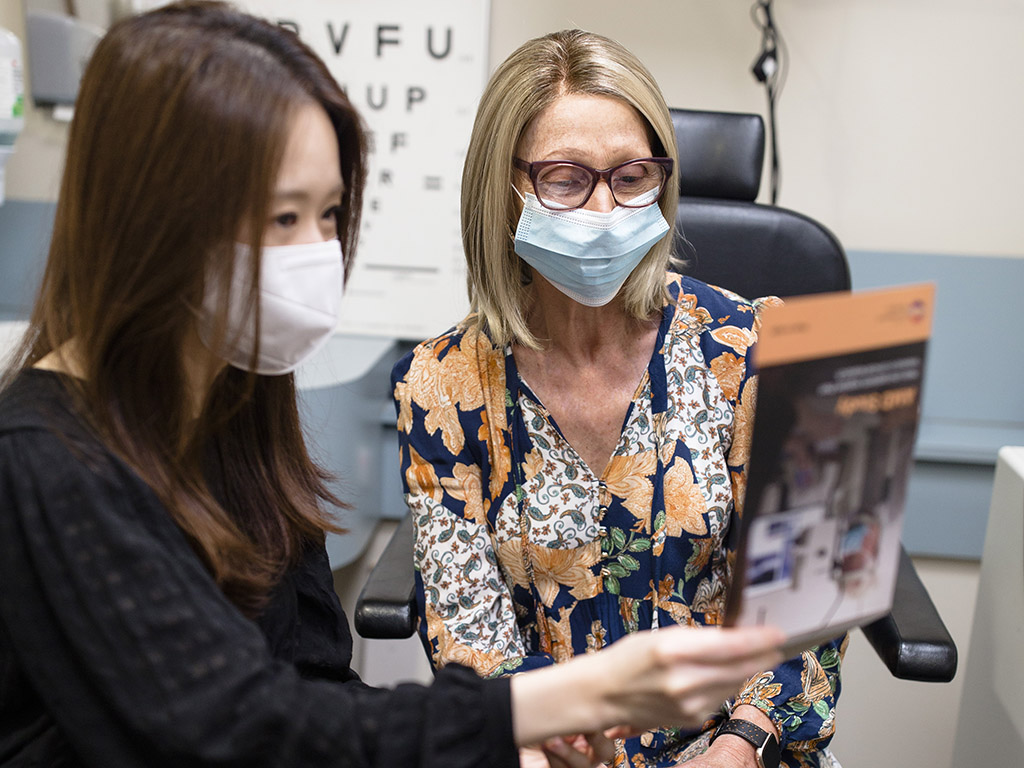Research
Putting research in the frame
Optometrists are playing a vital role in helping their patients get involved in research.
As researchers shift their focus to stopping vision loss before it progresses, optometrists have become a valuable partner in identifying patients to take part in research.
Studies investigating ways of halting vision loss often need participants who show the early signs of disease, but are not experiencing advanced symptoms.
“Optometrists are the best people to find these early-disease patients,” says Dr Emily Glover, optometrist and clinical trial coordinator in CERA’s Macular Research Unit.
“They’re hands-on with these conditions on a daily basis.”
New pathways
Dr Glover is leading a new initiative to make it easier for optometrists to link their patients with clinical research at CERA.
She says that while traditionally many study participants have been directed to research by their ophthalmologist or when visiting a hospital, by the time they are seeing these specialists their condition has usually progressed.
“Patients with early age-related macular degeneration (AMD) generally have good vision at the disease’s earliest stages – and are more likely to be visiting an optometrist,” she says.

Dr Glover is visiting community optometry practices around Victoria to inform them of the studies underway, as well as provide materials which enable optometrists to help their patients register interest in research.
This includes a registration pad, which optometrists fill out so their patients have the most accurate, up-to-date information about their vision if they are interested in participating in research.
She says it’s a positive experience for everyone involved.
“For patients, they have information about research to act on, and for optometrists, they have another way they can help patients manage their health care,” she says.
“For us, we’re able to continue our research.”
The Australian College of Optometry (ACO) in Carlton is one of around 30 practices now directing patients to research.
“Research plays a valuable role in shaping our understanding of eye diseases, informing best practice and developing newer and more effective treatments which will ultimately benefit our patients,” says Janelle Scully, Lead Optometrist Ocular Disease Services at the ACO.
“It is exciting to know that important research is happening right here in Melbourne and that our patients can be involved.”
This article first appeared in See the future: Annual Review 2022.
